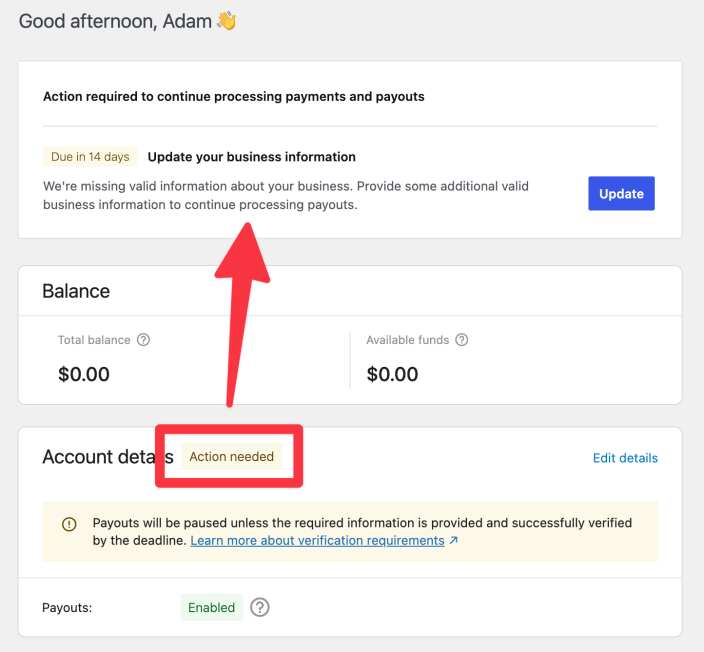Spanish version of this page | Aquí puedes encontrar la versión en español de esta página
This page is an overview of the various policies we have, what information we collect from merchants, what types of businesses are allowed, and other such details.
Terms of Service
↑ Back to topBy clicking the “Finish setup” button in WooPayments, you agree to the Terms of Service. Please see that document for our full terms. The remainder of the content on this page details other policies and procedures you may be interested in.
Prohibited products
↑ Back to topThere are a few businesses and products that are restricted or prohibited from using WooPayments. Please see that list if you suspect that your store or products may not be allowed.
Some common examples:
- Can I sell CBD and other hemp-derived products with WooPayments?
- Can I sell alcohol with WooPayments?
WordPress.com account
↑ Back to topWooPayments requires a WordPress.com account to connect your site to the WooPayments server. You will be asked to connect to a WordPress.com account during the signup process, or you can create a new one if you don’t have one already.
The WordPress.com account is used to ensure that requests from your site (e.g., payments, refunds, etc.) are securely and correctly attributed to your store.
Jetpack
↑ Back to topThe Jetpack plugin is not required to use WooPayments. WooPayments does connect your site with WordPress.com as described above, but the Jetpack plugin itself is not necessary to make this connection.
That said, Jetpack can be installed alongside WooPayments to add additional security, performance, and marketing tools to your site. It will use the same WordPress.com connection as WooPayments, so there’s no need to connect it separately.
“Know your customer”
↑ Back to topBecause the payments sector is heavily regulated, we must gather certain information from you before you’ll be able to use WooPayments. For example, during the signup process you may be asked for the following:
Personal information
- Your name
- Date of birth
- Home address
- Bank account info
- etc.
Business information
- Type of business
- Business address
- Phone number
- Business tax ID
- etc.
In the payments industry, this process is called “know your customer” or just “KYC.” Please consult our Know Your Customer FAQ for answers to further questions.
Restricted accounts
↑ Back to topOn rare occasions, payments and/or payouts may be restricted on your account. This can happen for a variety of reasons:
- Your account is missing some information and the deadline to add it has passed.
- Dispute activity has increased substantially — beyond reasonable thresholds.
- Our payments partner, Stripe, has found other issues with your account.
If your account is restricted, you should receive an email with more information from either the WooCommerce team or Stripe. Please respond to this email to address the issue. If your account is restricted, but you didn’t receive an email, contact support.
For certain types of restrictions, you may also be notified of upcoming or past due requirements on the Payments > Overview page, like so:
Click the Update button and log into your Stripe Express account using the 6-digit code sent to your phone number. Once you’re logged in, a sidebar will open and guide you through adding the required information.

Reserves
↑ Back to topBecause WooPayments is built in partnership with Stripe, they make the final determination on whether or not to temporarily withhold some (or all) of your payouts based on perceived risk factors. This is called a “reserve.”
Please see our Reserves guide for more information.
Return policies
↑ Back to topWooPayments offers in-person payments via a physical card reader. Should you need to return a card reader to us, please consult our card reader return policy.
Data security
↑ Back to topWooPayments is PCI compliant, but merchants should still be aware of the core PCI-DSS requirements. For more general information, please see our PCI-DSS Compliance and WooCommerce documentation.


